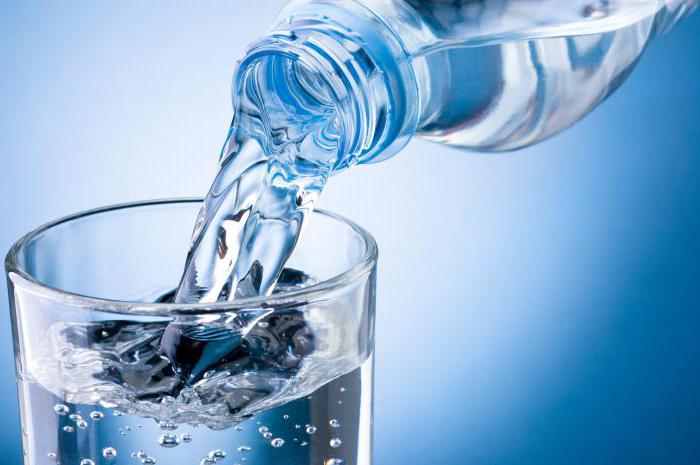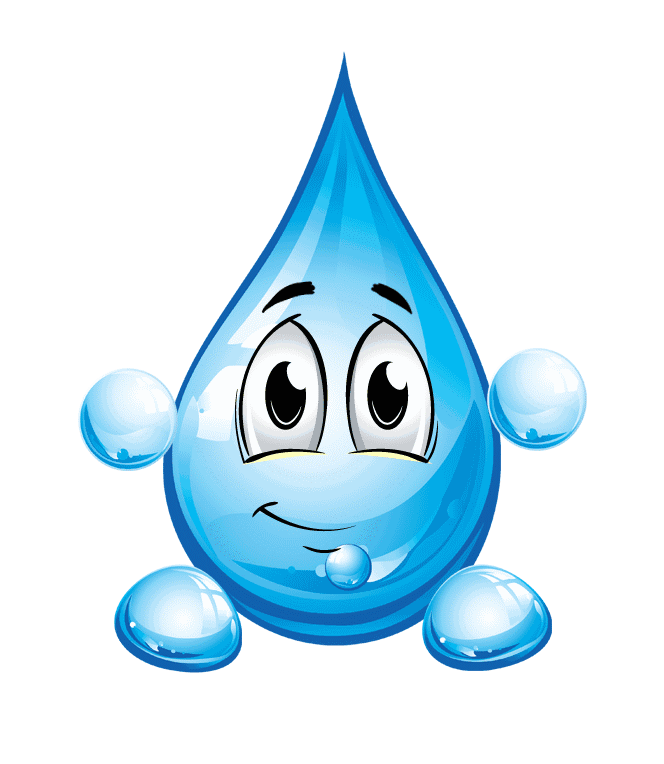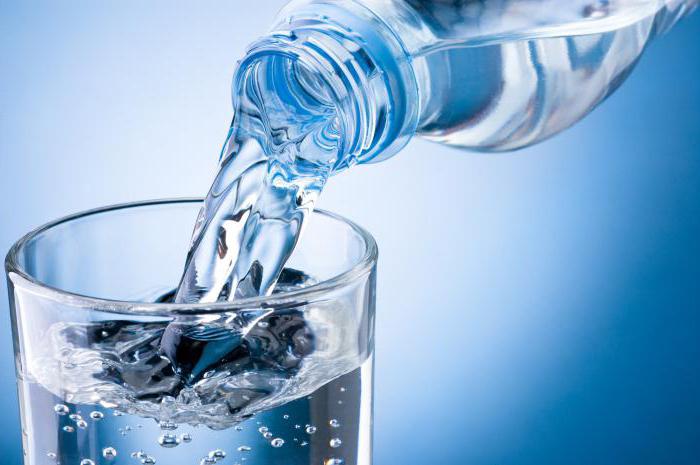Bakery technologist training. Studying programs
02/19/03 Technology of bread, pastry and pasta
organization and management of technological processes for the production of bread, bakery, confectionery and pasta.
Raw materials, basic and auxiliary materials used for the production of bakery, confectionery and pasta;
Semi-finished products;
Finished products of bakery, confectionery and pasta;
Technological processes for the production of bakery, confectionery
and pasta;
Equipment for the production of bakery, confectionery
and pasta;
The processes of organizing and managing the production of bakery, confectionery and pasta;
1. Acceptance, storage and preparation of raw materials for processing.
2. Production of bread and bakery products.
3. Confectionery production.
4. Pasta production.
5. Organization of work of the structural unit.
6. Performance of work in one or more professions of workers, positions of employees.
02/19/10 Technology of catering products
Qualification: Technological Technologist
Field of professional activity of graduates:
organization of the process and preparation of complex culinary products, bakery and flour confectionery for various categories of consumers and management of food production.
The objects of professional activity of graduates are:
Various types of products and raw materials, semi-finished products of industrial production, including high degree of readiness;
Technological processes for the preparation of complex culinary products, bakery and flour confectionery products from various types of raw materials and semi-finished industrial products, including high levels of readiness;
Processes for managing various sectors of catering;
Primary labor collectives of public catering organizations.
Technician technologist is preparing for the following activities:
1. Organization of the cooking process and the preparation of semi-finished products for complex culinary products.
2. Organization of the cooking process and the preparation of complex cold culinary products.
3. Organization of the cooking process and the preparation of complex hot culinary products.
4. Organization of the process of preparation and preparation of complex bakery, flour confectionery.
5. Organization of the cooking process and preparation of complex cold and hot desserts.
6. Organization of work of the structural unit.
02/15/06 Installation and technical operation of refrigeration and compressor machines and installations
(by industry)
Qualification: Technician
Field of professional activity of graduates:
organization and conduct of installation, technical operation and maintenance, repair and testing of refrigeration and compressor machines and plants; organization of activities of primary labor collectives.
The objects of professional activity of graduates are:
Refrigeration equipment and accessories;
Technical technological and regulatory documentation;
Technological processes of cold production;
Primary labor collectives.
The technician is preparing for the following activities:
1. Conducting the process of installation, technical operation and maintenance of refrigeration and compressor machines and installations (by industry).
2. Participation in the repair and testing of refrigeration equipment.
3. Participation in the organization and planning of the team at the production site.
4. Performance of work in one or several professions of workers, positions of employees.
01/01/09 Cook, pastry chef
Qualification: Cook, Confectioner
Field of professional activity of graduates:
cooking a wide range of simple and basic culinary dishes,
bakery and confectionery flour products, taking into account the needs of various categories of citizens.
The objects of professional activity of graduates are:
The main and additional raw materials for the preparation of culinary dishes, bakery and confectionery flour products;
Technological equipment for food and confectionery production;
Crockery and inventory;
Processes and operations for the preparation of food products.
1. Cooking from vegetables and mushrooms.
2. Cooking dishes and side dishes from cereals, legumes and pasta, eggs, cottage cheese, dough.
3. Cooking soups and sauces.
4. Cooking fish.
5. Cooking meat and poultry.
6. Cooking cold meals and snacks.
7. Cooking sweet foods and drinks.
8. Preparation of bakery, flour and confectionery products.
01/19/04 Baker
Qualification: Baker, Confectioner
Field of professional activity of graduates:
performing work on the preparation of bread, crackers, various types of cookies, gingerbread, waffles, pastries and cakes without cream, other piece pastry flour products.
The objects of professional activity of graduates are:
The main and additional raw materials, semi-finished and finished bakery products;
Technological processes and operations for the preparation of bread, bakery, lamb and rusks, various types of cookies, gingerbread, waffles, cakes, cakes, other piece-and-pastry flour products;
Recipes for bread, bakery, lamb and crackers, various types of cookies, gingerbread, waffles, pastries, cakes, other piece pastry flour products;
Technological equipment of baking production.
Cook, pastry chef prepares for the following activities:
1. Propagation and cultivation of yeast.
2. Cooking the dough.
3. Cutting the dough.
4. Heat treatment of dough and surface finishing of bakery and flour confectionery.
5. Stacking and packaging of finished products.
01/19/09 Equipment adjuster in food production
(by industry)
Qualification: Equipment adjuster in food production
Field of professional activity of graduates:
performance of installation, repair, commissioning, maintenance of equipment in food production.
The objects of professional activity of graduates are:
Equipment of food industry organizations, including machines, mechanisms, apparatuses, their complexes and systems;
Instruments;
Stationary and mobile equipment maintenance facilities;
Technological processes and operations of installation, commissioning, maintenance and repair of equipment of food industry organizations.
Equipment adjuster in food production
(by industry)preparing for the following activities:
1. Repair of parts and equipment mechanisms of food industry organizations.
2. Installation, commissioning, commissioning of machines, devices and technological lines of food industry organizations.
3. Maintenance, adjustment, adjustment and repair of existing equipment of food industry organizations.
02/02/01 Organization of service in catering
Qualification: Manager
(with full reimbursement of training costs)
Field of professional activity of graduates:
organization of services at catering enterprises of various types and classes.
The objects of professional activity of graduates are:
Catering services;
The processes that ensure the provision of catering services;
Catering products;
Primary labor collectives.
The manager is preparing for the following activities:
1. Catering in public catering organizations.
2. Organization of services in catering.
3. Marketing activities in public catering organizations.
4. Quality control of products and catering services.
5. Performance of work in one or several professions of workers, positions of employees.
Send an application for training right now and get absolutely free access to the first lesson, where we will tell you about 18 secrets that will make any bakery more attractive and profitable!
Where to take baker's courses in Moscow? How to become a baker? What you need to know for the profession of a baker? The experts of the Institute of Culinary of the Business Academy of IBA CITY will give you answers to all these questions.
The Institute of Culinary at the Business Academy MBA CITY is pleased to present to your attention a training program for the profession “BAKER”.
During the fascinating training of a baker’s specialty in the course “BAKER” you will become a professional in the field of culinary and a highly valuable specialist. You will learn how to cook baked goods and dishes of any complexity. You will learn what types of dough exist and what dishes can be prepared from different dough, learn recipes from different countries and learn the professional culinary secrets of bakers. You will also master and be able to put into practice important aspects of work - the competent purchase of products, the handling of perishable products, the preparation of breads and desserts.
The program of the training course for cooks and bakers was created for those who want to improve their culinary qualifications and get the skill of preparing original and delicious dishes. Training on the course “BAKER” will be an important stage for you, useful for personal growth and the rapid increase of your culinary abilities. Reach new culinary heights thanks to the valuable knowledge acquired at the Institute of Culinary.
To take the “BAKER” course, we suggest that you choose the most convenient and effective training format:
Distance learning. The leading and most popular to date, distance learning program "BAKER" provides for your full participation in the process. After payment through your personal account on the website, you are given access to all the tasks and lessons of the course of the Institute of Culinary Business Academy of MBA CITY, and you can master the program at a convenient pace and schedule.
Internship.This type of training is aimed at training as close as possible to practice. In addition to the theoretical materials of the distance course, you can take an internship in a restaurant or cafe under the guidance of highly professional chefs.
Specialists of the Institute of Culinary at the Business Academy MBA CITY will certainly provide you with professional support and will be happy to answer all questions that arose during the study.
At the end of the course “BAKER” you can cook pastries of any complexity, many new and interesting dishes, delight your relatives and friends with your culinary creativity, and you can also apply your culinary knowledge to part-time and individual entrepreneurship.
Get a culinary education, improve your knowledge and skills, master a promising profession, often becomes one of the best, key decisions in human life. Studying as a baker at the Cooking Institute is easy and fun. After the first lesson, you will be able to apply the techniques and techniques of culinary art in practice, and the quality and taste of your dishes will be increased many times! To complete the “BAKER” training program means to get all the necessary basic knowledge in cooking.
Upon completion of training, you will receive a certificate with the international application for passing the course “BAKER”, and this document will be a significant plus for your resume and an excellent confirmation of the acquired professional knowledge.
License for educational activity No. 038379
The program of the training course "BAKER"
1. Types of bakery products1.1 Different types of bread
1.2 Bakery products made of wheat flour
1.3 Butter bakery products
1.4 Lamb and bread products
1.5 Dietary bakery products
1.6 Quality control of bakery products
2. Preparation for baking products
2.1 Kitchen equipment and its use
2.2 Characterization and preparation of raw materials
2.3 Types of dough and methods of loosening it
2.4 Secrets of making dough
2.5 Work with the test and molding products
3. Bread from yeast dough
3.1 Methods for making yeast dough
3.2 Preparation of a round loaf
3.3 Preparation of standard and long French loaf
3.4 Instant buns
3.5 Baking air donuts
3.6 Steam products of complex shape
4. Bread from pastry and unleavened dough
4.1 Methods for making pastry
4.2 Dough for brioches
4.3 Butter cookies of various shapes
4.4 Cooking bagels
4.5 Preparation of complex structures from pastry
4.6 Methods for making fresh dough
4.7 Basic unleavened bread products
4.8 Cooking Corn Bread
5. Cooking gray (black) bread
5.1 Preparation of dough for gray bread
5.2 Bread with various fillings
5.3 Cooking sesame braids, gray rolls and stars with poppy seeds
5.4 Bread with nuts and seeds
5.5 Cooking whole grain bread
6. Preparation of Flavored Bakery Products
6.1 Types of fillings and methods for their preparation
6.2 Baking flat cakes
6.3 Bread with vegetables
6.4 Dark Dark Loaf
6.5 Buns with fruits and nuts
7. Bread in European cuisine
7.1 Preparation of olive dough
7.2 Focaccia and Mediterranean Bread
7.3 Baking Bowls for Bread Soup
7.4 Loafs and cakes with unusual fillings
7.5 Secrets of making pizza dough
7.6 Pancetta Bread
7.7 Cooking Italian Ciabatta
Details
The specialty of a baker-confectioner in Moscow is quite in demand. However, to declare yourself as a specialist, you need to take the appropriate courses. Fortunately, dozens of training centers can offer them to you in the capital.
The choice of courses for bakers-confectioners in Moscow is huge. And you can select according to various parameters - location, price, and even employment options. It is also possible. But first things first.
A pastry baker combines the skills of two specialties, namely:
- Baker;
- Confectioner.
From a logical argument follows the statement: you can work in the field of baking and be known as a “baker”. You can devote yourself to the preparation of confectionery products - the specialty of “confectioner”. However, the division into a “cook” or “pastry chef” and, conversely, the combination of two specialties does not interfere with each other. And the famous Krylov's fable, in which trouble occurs due to the mixing of professions, is not for this case. And the courses of a baker-confectioner in Moscow are quite a common thing.
If we talk about professions in more detail, we get the following.
- Those who know how to bake various bakery products, including bread, are called bakers. A modern baker can bake a variety of pastry. If you go to the grocery store, then there is an assortment of bakery products: the shelves of the grocery department are bursting with buns, all kinds of bread, pies. This is the work of the bakery shop, in which not a dozen specialists in this field work.
- The second specialty is the specialty of a “confectioner”, a person who knows how to make confectionery (sweets, cakes, cakes, cookies, and so on). Cooking historian William Pokhlebkin, teaching beginners, said that the main difference between a confectionery and a bakery is that in a confectionery, flour is less than half the weight. The rest of the weight is sugar and supplements.
- And now let’s imagine a third specialist, a pastry baker, who knows how to bake baked goods and cook all kinds of sweets. There is no price for such a specialist.
- start of profession
Where can I finish the courses of a baker-confectioner in Moscow? The list of educational institutions graduating specialists in this field is large. The first in it is the Moscow Academy Exclusive.
Moscow Academy Exclusive is constantly recruiting for courses of “bakers-confectioners”. In total, the Academy has developed 25 courses taught by professionals in their field, winners of confectionery and baking art contests, Russian professionals, and specialists from abroad. Anyone who chooses to specialize himself: “pastry chef”, “baker”, “baker-pastry chef”.
One can advise cadets to master the wider profession of “baker-confectioner”, because there are more chances for employment and wider opportunities for creativity.
Regarding the courses of the baker-confectioner in Moscow, you can also contact the MBA CITY Business Academy, which is taught by specialists with extensive experience and experience in confectionery enterprises.
A cadet of a Business Academy who has received a Certificate of completion of courses can get a job in a prestigious restaurant in the capital and become a candidate for continuing further studies abroad. Moreover, the desire of the administration to have first-class specialists in their institution who have been trained abroad is not a myth, but a reality. And a person for whom the profession of “baker-confectioner” will become not only a vocation, but also the work of a lifetime, will not miss such a chance.
Of course, these are not all options for baker-confectioner courses in Moscow. There are a great many of them and it’s not so difficult to find a suitable one for you.
What gives training at the courses of a baker-confectioner in Moscow?
Moscow courses are held to a high standard. This is evidenced by the training program of the “baker-confectioner”. A prospective cadet, before writing an application for courses of a baker-pastry chef, has the opportunity to get acquainted with the curriculum. The objectives of this program can be defined as follows: the preparation of bakers and confectioners for the restaurant business, catering enterprises of various levels. The program includes professional basic training and practical part.
Are there any advantages of training at a baker-confectioner in Moscow?
The courses of the baker-confectioner in Moscow are not much different from those in Russia. The training program is similar everywhere, and the courses are suitable for both a novice specialist and a professional specialist, because they also talk about modern trends in culinary art, teach the proper design of bakery and confectionery products. Course participants gain both experience and knowledge.
The certificate of courses makes it possible to find a job at a prestigious place, especially if the future specialist will also attend several master classes in various areas. There is no need to complain about the costs of training: within a month after the start of work (the administration of the courses often hires students), you can return the money spent.
Food Production Technologist - A specialist in charge of the quality of manufactured food products at all stages: from the receipt of raw materials to the time of packaging of finished products. The profession is suitable for those who are interested in labor and farming (see the choice of a profession for interest in school subjects).
High-quality food is the key to the health of the country's population. Therefore, the profession of a food production technologist will always be in demand and its importance is only growing, especially in modern conditions. An extremely important task has been set for the country's food industry - an increase of up to 70-80% of processed agricultural products. And this is possible only in the case of the emergence and implementation of effective competitive new technologies, the development of which are also involved in food production technologies.
Food products are represented by a huge number of products. Accordingly, their production technologies are different.
Training of specialists takes place in the following areas:
- technology of meat and dairy industry;
- technology of bread, pastry and pasta;
- technology of fermentation and winemaking;
- canning production technology.
- Specialization, as a rule, is chosen by technologists during the training period.
But no matter where the technologist works, his main task is to prevent disruption of the production cycle. The slightest deviation from the technology and formulation of the production of the product will lead to the marriage of an entire batch. Only constantly monitoring all components of production can ensure the quality of products. So, for example, if suppliers brought the wrong kind of meat for the production of sausages, the technologist must figure out the reason for this and demand the supply of meat of the required quality. Monitoring the air temperature in the production shops that produce dairy products or wines is also the responsibility of the technologist. Equipment health, timely delivery of the right number of packages - all this is controlled by the technologist.
Profession Features
Functional duties of a food production technologist:
- quality control of raw materials and manufactured products;
- monitoring compliance and ensuring the correctness of the existing production technology;
- quality control of the finished product;
- control over the correct packaging, labeling and storage conditions of products;
- optimization of production technology;
- monitoring the correct operation of equipment;
- analysis of problematic production situations;
- development of the formulation and technology for the production of new products;
- development of technological documentation;
- calculation of norms of consumption of necessary raw materials, time costs;
- calculation of the cost of production;
- drawing up orders for raw materials and necessary equipment;
- preparation of documentation for product certification;
- monitoring the implementation of sanitary rules at work.
Pros and cons of the profession
pros
- Constant demand in the labor market;
- stable work;
- quite high wages in large companies.
Minuses
- responsibility for deficiencies in the work of other services;
- intense rhythm of work;
- overtime work;
- in some industries, a shift schedule.
Place of work
Food production: meat and dairy plants, dairy plants, confectioneries, bakeries and pasta plants, canneries, as well as plants for the production of mineral waters, low alcohol drinks, wines, strong alcoholic drinks. Technologists are also in demand at factories for the production of food acids, baking and spirit yeast in laboratories of various industries.
Salary on 04/22/2019
Russia 25,000-60000 ₽
Moscow 45,000-150,000 ₽
Important qualities
- responsibility;
- patience;
- stress resistance;
- the ability to quickly make decisions in emergency cases;
- accuracy;
- good memory.
Where to study as a food production technologist
Technologists can receive training in two areas:
- in the universities of food specialization in the departments “technology of bread, confectionery and pasta”, “technology of the meat and dairy industries”, “technology of fermentation and winemaking”, “technology of food”, “technology of canning production”;
- in chemical and technological universities - according to the universal specialization “food biotechnology” or “biotechnology”.
Higher education:
Colleges:
- College of Nutrition No. 33 - Technology of bread, pasta and confectionery
- Moscow Technological College of Nutrition of the Russian University of Economics G.V. Plekhanova
- Moscow educational complex Victor Talalikhin
- The first Moscow educational complex
- Moscow College of Management, Hospitality and Information Technology Tsaritsyno
Salary
Salary on 04/22/2019
Russia 25,000-60000 ₽
Moscow 45,000-150,000 ₽
Remuneration depends on the company in which the technologist works, work experience and qualifications.
Career Steps and Prospects
Young specialists initially held the position of junior technologist. Career growth is possible in the following sequence: technologist, senior shift technologist, chief technologist, production manager.
Portrait of a modern food production technologist:
Food production technologists, as a rule, employ women with higher education - 69% of the total; men, respectively, 31%. The percentage of youth under the age of 30 years is 63%. Food process engineers are most in demand in Moscow, St. Petersburg, Yekaterinburg, Kazan and Volgograd.
1. Types of catering and their structure- Features of trade and production activities and retail sales
- General requirements for culinary enterprises, restaurants, cafeterias, cafes, bars and canteens
- Rules for placing a network of catering facilities
- Job descriptions, rights and responsibilities of culinary production employees
- Methods and rules for the culinary processing of products
- Catering infrastructure and workplace rules
- Types and purposes of auxiliary production facilities, distribution lines, culinary shops and their units
- Storage rules for products, packaging. Rules for building relationships with suppliers
- Logistics, acceptance of products and forms of distribution
- Automation of production and rational organization of labor
- Rules for the compilation of technological maps of dishes and recipes for new and signature dishes
- Standards and instructions in catering
- The structure of retail prices for finished products and trade margins
- Menu design and menu plan
- Rules for calculating the amount of raw materials and products for various types of menus
Distance courses of a food production technologist in Moscow are an opportunity to undergo professional training on a food production technologist via the Internet and, without leaving home, receive a diploma from Moscow University. Courses of technologists of catering calculators in Moscow will give you theoretical knowledge about the technology of food production, training in a simple and understandable form and will help you climb the career ladder in the field of cooking.
How to make a plan menu? How to calculate products? How to compile collections of recipes? How to rationalize the organization of labor in catering? You will find answers to all these questions at the courses of calculator technologists at the University of Business No. 1!
Apply for training right now - and soon you will plunge into the professional world of culinary art! Become a successful food production technologist with the University of Business No. 1!




